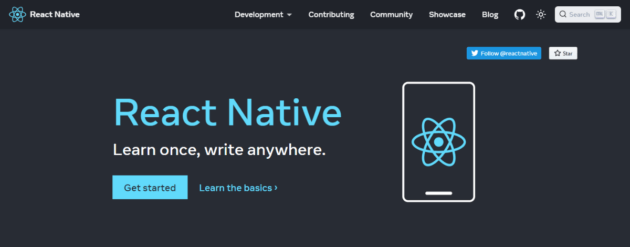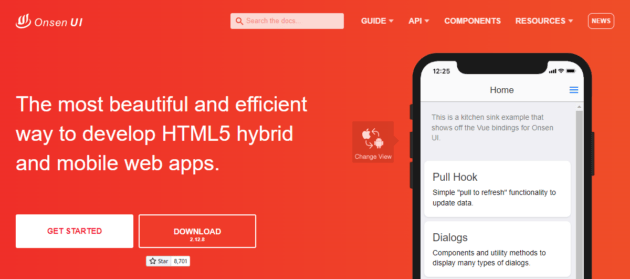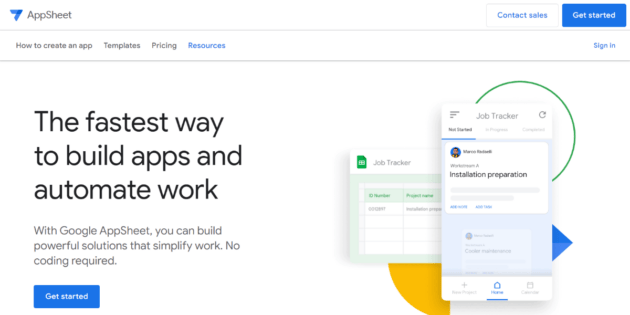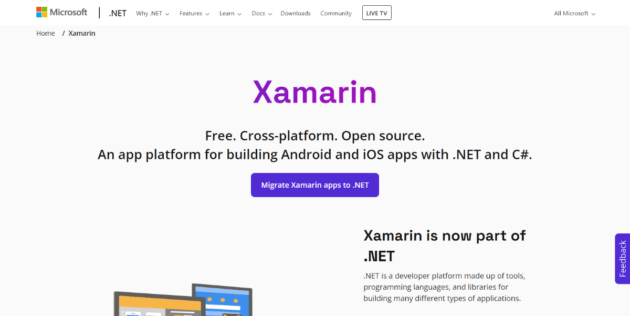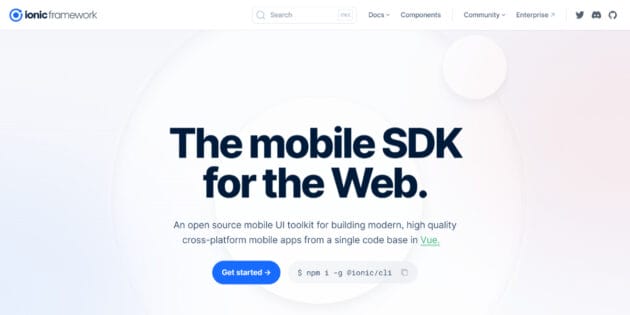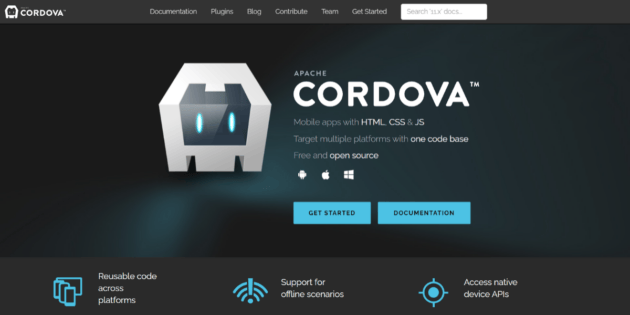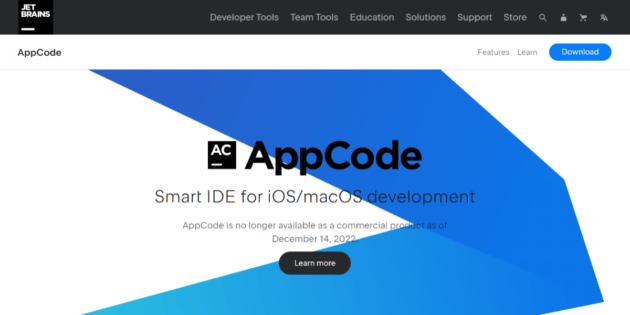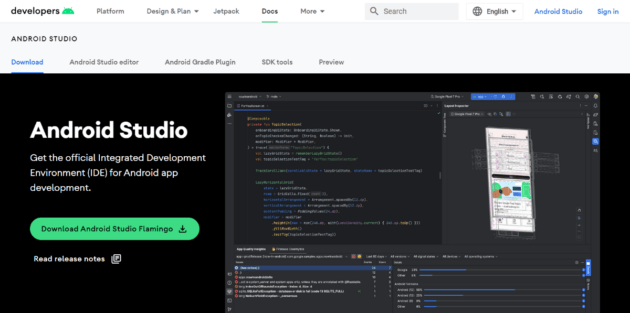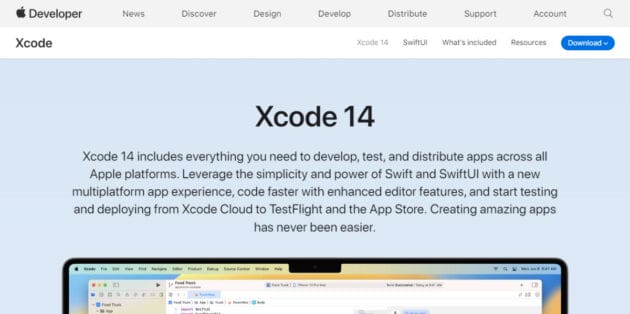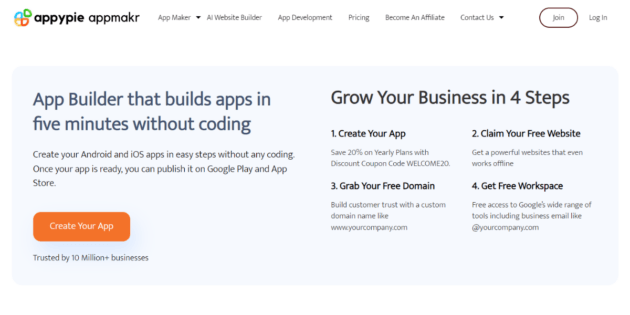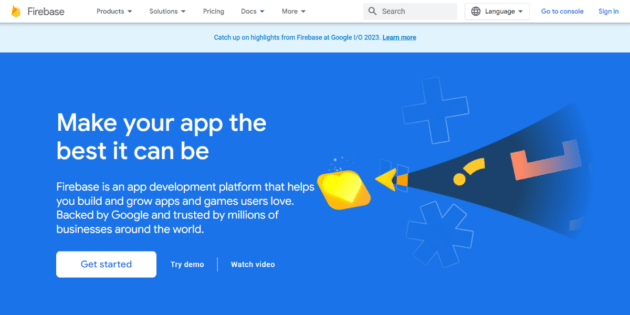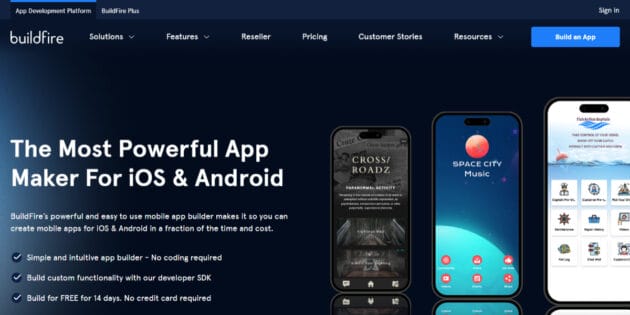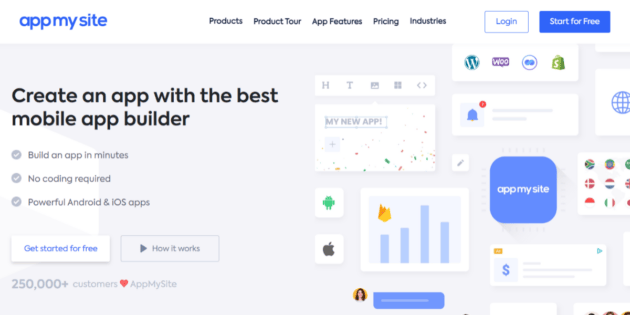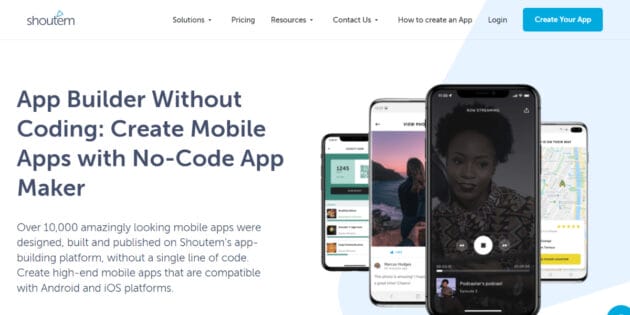From financial institutions to restaurants, the advent and continual technological advancements of smartphones, tablets, and smartwatches have led many companies to develop their own mobile apps. In fact, according to Gartner research, more than 75 percent of businesses around the globe have developed or adopted at least one app in hopes of growing their revenue stream.
Nowadays having only a mobile-first optimized website is not enough to secure revenue. Customers like the convenience of a mobile app with seamless user experience and design. This makes it easier for them to browse when online shopping and make purchases through their mobile devices. By building a mobile app for your business you can convert more customers into making purchases and reduce abandoned cart frequency.
Creating a mobile app for your business
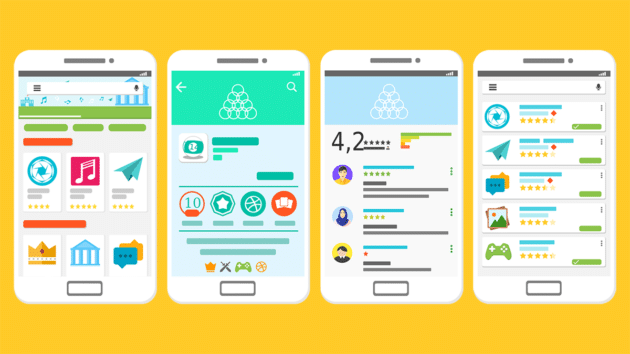
To create an app for your business that converts leads to customers you need to do your research. Learn about best app user design practices, create concept maps for how you want your mobile app to look, and detail what functionality you need to make that a reality.
Illustrating how your app could look with graphic design tools is a great way to test design concepts before coding. Try to create multiple designs. Once you have your design concept show these visuals to a test group to provide feedback on them before app development.
Once you decide on a design concept, you will want to determine how you will create your business app. What kind of budget do you have for app creation? Do you want it to be cross-platform? What coding languages are your employees familiar with?
Related: Mobile App Development: Native App vs. Web App vs. Hybrid App.
Mobile app development process: Create apps that people love

Mobile apps are touching new heights of popularity with each passing day. With many innovative and useful apps being launched on all major mobile platforms, there is no walk of life that the apps have not touched. We find the right way if lost, do shopping, book movie, and airlines ticket, and call electricians and plumbers through mobile apps. Although there are several apps for the same purpose, not each one of them becomes a hit. It is, therefore, evident that apart from a refreshing idea, the app must also be high on usability, beauty, and performance.
The app must be able to solve some problems for the users. An app that has the potential to understand the issues of the users and provides good solutions is the one people love. Developing such an app requires not just exceptional technical skills. It also needs a keen understanding of user preferences and a few other aspects like an intuitive UI/UX. There is no fixed formula for a successful app. You may make changes to the process discussed here or follow them as they are.
1. Conceive an idea
An idea is the backbone of the app. If you wish to create an app but don’t have an idea, find the problems people face in their lives. Then think of the solutions that apps can provide. The one that appears feasible and viable can be chosen.
2. Assess the need
After you have zeroed in on an idea, you need to identify the need for the app. Find out how important can the app become in the user’s life. It is required that you think ahead and assess the impact the app can make. It can be validated by having a look at the keywords that people are searching related to your idea.
3. Detailed flow of the app
Once the idea is validated, the flow and features of the app should be brought down on the paper. If you wish to make the process better, you can make use of a wireframe for better results.
4. Scrutinize the unwarranted features
An app has some core features and a few additional ones. When you develop an idea, you want to include a lot of features in the app. Some of them may appear irrelevant at a later stage. All such non-core features should be removed from the app for better performance.

5. Design UI/UX first
Businesses often ignore the UI design of the app and focus more on developing the functionalities. UI design is not just about the look and feel. It is the entire user experience and hence must be given priority.
6. Get a Developer on Hire
To develop a native or HTML5-based mobile app that has unique features and design layouts, a skilled and experienced app developer is a must. You can easily hire such developers from a reputed offshore development firm.
7. Use Analytics
Integrating analytics tools in the app helps you record the user’s preferences. This enables you to offer a personalized experience to the users. It will also boost the user retention of the app.
8. Take the feedback seriously
The feedback that you receive from the users must be taken into consideration while improving the UX of the app. You always need to keep an eye on the suggestions and keep building the app.
9. Update with new features
As discussed in the earlier point, the apps must be improved in accordance with the feedback from the users. When an error or bug is reported, you must work towards fixing it. Release the updated versions of your app on a regular basis.
A great app starts with a great idea, but having a completely new and unique idea is not warranted. If you have a different approach to an existing idea, you can add dimension to it. Then make an app that solves the users’ problem with greater efficacy. When you follow these steps, it is most likely that you will get an app that is well-designed, high on performance, and able to provide an exceptional UX – the most crucial aspect.
See also: UI vs UX Design: The Difference in User Interface & in User Experience.
15 must-have tools for streamlining your mobile app development process

Over the last few years, the mobile app market has taken a massive leap due to the constant migration of businesses and enterprises towards mobility. Modern-day businesses want their task force to be mobile and always up to take the call. Both medium and large-sized companies are adapting to a mobile world enabling anytime smartphone and tablet access. While creating a new mobile application from scratch may not be in everyone’s skill set, there are dozens of app development tools, many free, that make the process more accessible.
If you really want to develop a mobile app on your own, then it is possible for you now. There was a time when it was essential to hire a proficient developer that too by spending a huge amount of money. But, you can save a lot of money as multiple mobile app development tools have appeared in the market. These tools have been designed keeping the budget constraints of the users in mind.
The following are some of the best development tools that enable you to make a mobile app according to your business and customer requirements. This is a wonderful collection of development tools, SDKs, as well as mobile app builders (no-code and low-code). Professionals to novices can consider it for their specific purpose.
1. React Native
React Native is a free open-source tool created by the Facebook app community that operates on JavaScript technology using a cross-platform framework. It allows developers to create enhanced and native-like apps using just one base code. This allows for a single team of developers to build first-rate applications that have the look and feel of native apps. Since it is a community-made tool it is very user-friendly, but you have a community of developers to reach out to should you run into hurdles during the development process of your application.
2. Onsen UI
Onsen UI is a free, but powerful and easy-to-learn, tool for creating complex mobile applications. The tool uses a variety of rich UI components designed specifically for developing mobile apps. Onsen UI allows for the use of tabs, menus, stack navigation, animations, lists, forms, and other features and offers an interactive tutorial.
This app development tool uses JavaScript HTML5, and CSS for the creation of your app concept. Using the same source code, they have design support for both iOS and Android. There are also a variety of networks you can use from AngularJS 1.x, Angular 2+, React, Vue.js 2 and 3, or Onsen UI 1.x. Onsen UI provides many learning sources to help with the development of your mobile app from interactive tutorials, community forums, and official documentation on how to use their tools.
3. AppSheet
AppSheet is designed to create both Android and iOS apps directly from each system’s own data sources. Starting at just $5 per month, AppSheet is a powerful tool that allows data collection from various sources such as Dropbox, Google Drive, OneDrive, Smartsheet, and others and can automatically capture Geo-location data.
This is useful for creating productivity tools for your employees in your workplace. It is integrated with Google Workplace apps and requires no coding to create effective workflows. This can be used to improve task tracking in a variety of different industries. If your employees are already trained on how to use Google Workplace tools this may be the easiest way to create productivity tools for your work environment.
4. Xamarin
Xamarin is a free tool that allows for the creation of native Android, iOS, and Windows apps. It uses Visual Studio Tools based on IDE, or Integrated Development Environment technology, to create applications and permits most of the code to be written in a single programming language. You can create apps on this platform with .NET and C# programming languages.
5. Ionic
Ionic is a free and simple-to-learn tool built on standard web technology used for developing cross-platform apps for Android, iOS, and web-based platforms from a single base code in React, Angular, or Vue. It allows for fast modeling with a good command-line interface that creates a very easy-to-code environment. Their built-in plugins make it easy and their enhanced editor tooling (ie. Ionic VS Code Extension) will help you follow best coding practices from within your editor.
6. Corona Labs
Corona Labs is yet another free open-source tool that allows for creating cross-platform frameworks for both Android and iOS mobile as well as desktop applications. While it has a bit more of a learning curve than some tools, Corona Labs has been tailored to make use of hardware acceleration features to allow for faster mobile app development.
This coding platform is ideal for those interested in mobile two-dimensional game development. Whether you are looking to create an app for a mobile game or for advergaming, Corona Labs is the best tool for this purpose as it has been used in the development of many popular mobile game franchises such as Angry Birds and Civilization. The Lua-based language makes this all possible. Corona Labs’ compatibility also allows for cross-platforming and provides plugins for in-app advertising.
7. Apache Cordova
Apache Cordova (formerly PhoneGap) is a free tool from tech app giant Adobe. While this tool uses HTML, JavaScript, CSS, and web application programming interfaces, it also allows you to work with a single code base. While data can be kept in a local directory, files can also be stored in the cloud to create a more lightweight app.
Related: SEO Benefits of Having Strong Social Media Presence for Businesses.
8. AppCode
AppCode is an IDE designed for iOS and Mac development. It allows for the use of multiple programming languages including HTML, JavaScript, XML, CSS, C++, Objective-C, and Swift as well as others. It offers built-in Reveal support and CocoaPods manager. AppCode is the most spendy tool on the list at $199 per year, but it offers a free 30-day trial.
9. Android Studio
Android Studio is a free tool from Google itself that provides a variety of shortcut methods for app design and development that can greatly reduce the time needed for coding. One such shortcut is a unique drag-and-drop feature to expedite the layout design when creating new apps.
One of Android Studio’s unique features is its Wear OS Pairing Assistant which allows you to emulate your app on a smartwatch device. If you are looking to create a fitness app this may be the ideal coding platform for you.
10. Xcode
Xcode has become a standout in the app-development tool market by offering a new way to create app software, and it is free. Based on Swift programming language for Cocoa and Cocoa Touch, Xcode allows for live rendering to instantly reflect changes and includes everything needed to create, test and debug apps for iOS and Mac devices. If you are planning to stay exclusively with the Apple App Store then this may be the ideal platform for you, but if you require cross-platform functionality your app will not be accessible via an Android device.
11. Appy Pie App Maker
Appy Pie App Maker is a no-code app builder that enables developers and non-technical users to create fully functional mobile applications in minutes. It offers an array of features and development tools for creating the perfect Android, iOS, or Windows mobile app. With Appy Pie’s platform, you can easily assemble all the components of your app such as user interface elements, images, back-end database integration, third-party APIs, etc. You don’t need any programming knowledge to build your own mobile app without coding using this no-code platform!
12. Firebase
Firebase is an app development platform created by Google. It provides a cloud-based backend service that developers can use to build, manage and secure their web and mobile applications. It helps them to store data, authenticate users, send notifications, analyze usage metrics, and more – all from one centralized platform.
Firebase has many tools to help developers with their apps including its Realtime Database, Authentication, Analytics, Cloud Messaging, Hosting, and Machine Learning kit. All of these features make Firebase an essential toolkit when it comes to building modern applications since you don’t have to worry about managing complex server infrastructure or writing difficult code yourself – everything is done automatically.
Additionally, Firebase offers generous pricing plans so any size organization can benefit from using its powerful backend services.
13. BuildFire
BuildFire is an app maker software that offers users the ability to create iOS and Android mobile applications quickly and easily. It provides a comprehensive platform for creating high-end, feature-rich apps without needing any coding skills or technical experience. With BuildFire’s user-friendly drag-and-drop interface, you can easily design your dream app in minutes. Simply select from their wide selection of templates, add desired features such as push notifications and custom branding options, then publish it in Apple App Store or Google Play Store.
BuildFire provides a variety of tools to make designing custom apps simple yet powerful. Its library of widgets includes news feeds, blogs, audio streaming services, galleries, and more. All the code generated by BuildFire follows industry standards for stability and security. This means your app is ready for launch right away! Plus, BuildFire’s suite of developer tools is available so that you can take full control over how your application looks and functions exactly how you desire.
14. AppMySite
AppMySite is an advanced mobile app builder that empowers entrepreneurs, small businesses, and enterprises to turn their websites into mobile applications. It helps create high-performance native apps for Android and iOS platforms with minimal design efforts.
The AppMySite web app provides a comprehensive suite of features that allow users to swiftly craft powerful applications from scratch or convert their existing websites into feature-rich cross-platform applications. Thus, it eliminates the need to code or hire expensive developers in order to develop professional applications. The user can add best-in-class functionalities per their business requirements without any coding expertise, thereby getting more leads and conversions than ever before.
15. Shoutem
Shoutem is another mobile app builder that allows non-technical users to quickly create professional, engaging mobile apps without coding. It enables you to build native iOS and Android apps with different levels of complexity.
Shoutem also provides tools for managing the user interface design process as well as hosting your app in the cloud. With their WYSIWYG editor, you can customize the look of your application by changing colors and fonts or adding custom backgrounds. All without writing any code. Also included are various analytics options to measure usage patterns within your app’s audience so you can better understand how it’s performing over time.
Furthermore, Shoutem offers add-ons such as push notifications, other marketing solutions, and monetization services to help maximize potential revenue streams from an application. Ultimately this platform provides an easy but powerful solution for entrepreneurs or business owners looking to reach their target audiences through mobile devices while avoiding costly investments in software engineering resources typically required when developing applications on other platforms.
Choosing the right development tools for your mobile app creation

There are many different types of app creation tools out there and the industry continues to expand. Before deciding on software to make your app a reality you need first to consider what you want the functionality of your app to be. Take time to research in depth what each tool can help you with. By being fully informed you can ensure that you choose the right tool for your needs at the very beginning of the development process avoiding any headaches later on in development.
Consider what language you want to code in before starting. Make sure to do so in a native environment that will not finalize your changes before you are ready to launch your concept.
Weigh the pros and cons of each app creation tool and consider the costs. Soon enough you will bring your app concept to life.
See also: Creating Your Business Website – The Day 1 to Day 7.
Conclusion

The demand for mobile apps continues to grow. Consumers are continually looking for more expedient ways of accessing business services. Having a mobile app makes it convenient for your customers to access your online services while on the go. Developing your own business app can greatly improve customer interaction and increase profit margins. Most of the mobile app development tools listed here are either free or have a free trial offer or a demo version so you can use or at least try them out without making a financial commitment. Doing ample research and testing out these platforms will help lead you to create the best mobile app for your business.
Author: Halley Jones
We have written this article in association with Halley Jones. Halley is a freelance content writer and guest author. She has a passion for crafting engaging and informative articles on a variety of topics. With over 5 years of experience in the industry, she has a strong understanding of SEO best practices.
